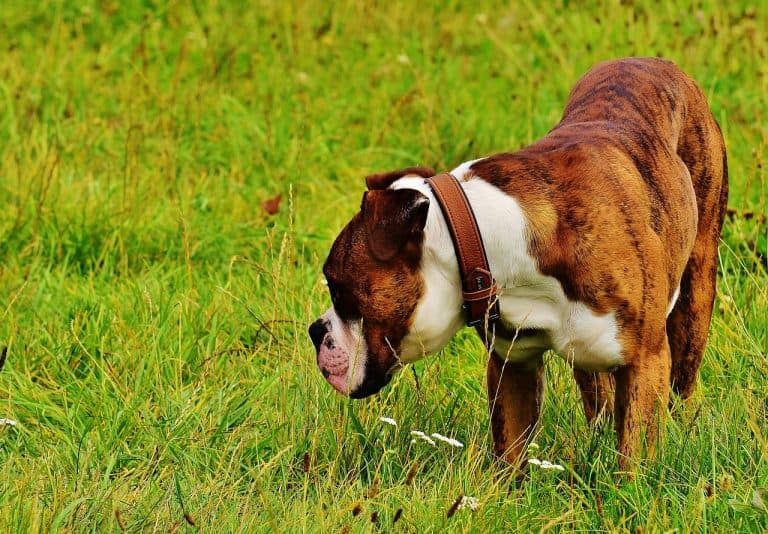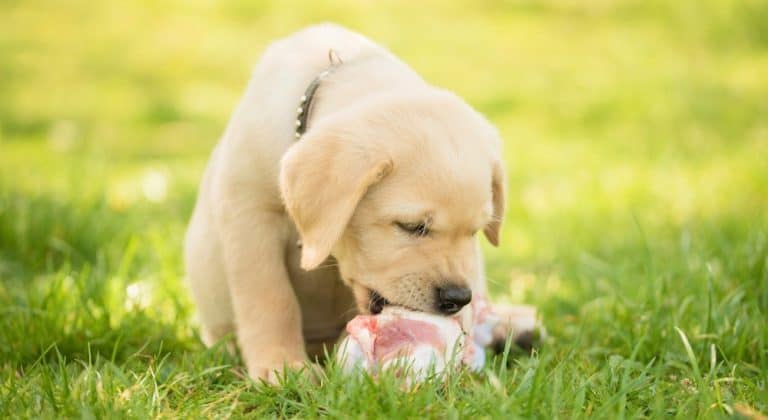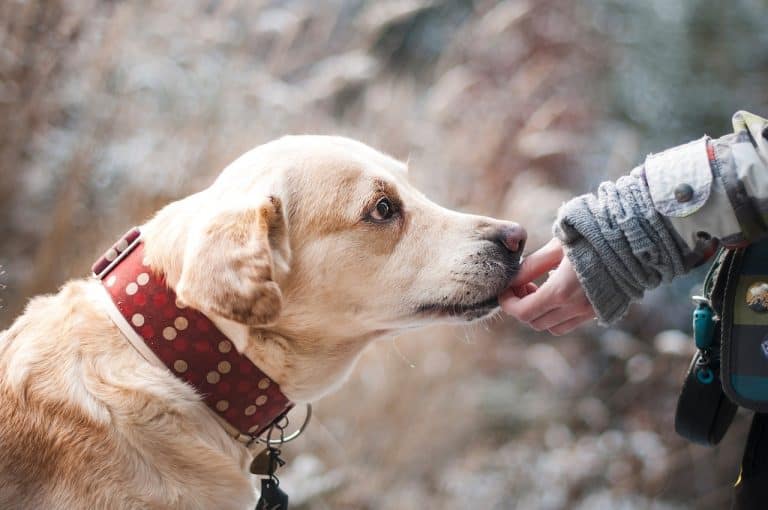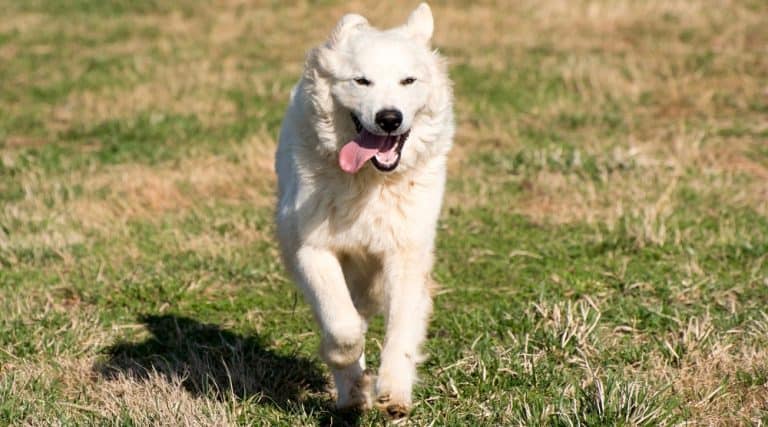How Much To Feed A German Shepherd Puppy? GSD Puppy Feeding Chart
German Shepherds have a wonderful reputation for following directions, strength, and intuitive thinking. It comes as no surprise that they are one of the most popular breeds to own around the world.
And it’s no surprise that many people are wondering how much to feed a German Shepherd puppy. If you have recently adopted or are adopting a German Shepherd puppy, however, you will need to make sure that you are setting your pup off to the right start in life.
Through balanced nutrition and exercise, you should be able to raise your puppy to be a healthy and active life. You will need to make sure you are feeding your puppy the right type and amount of food to succeed.
Whether you have a 4 week old, 6 week old, 8 week old, 10 week old, 12 week old or anything in between German Shepherd puppy, we have you covered.
How Much Should A German Shepherd Puppy Eat?
You need to be careful when feeding your German Shepherd puppy. They should not be left to their own devices when it comes to food. Instead, feed your puppy 3 meals a day.
The amount of food your puppy needs depends on your puppy’s hunger, weight, and the type of food that you are feeding him. Stick to the German Shepherd puppy feeding chart below.
Watch your puppy’s waistline to see if there seems to be any excess weight hanging out that will be hard to lose later.
A puppy that is too thin will have visible ribs. If that is the case, monitor how much your puppy eats and, if concerning, call your veterinarian.
How Many Calories Does a German Shepherd Puppy Need?
The number of calories that your puppy needs depend on certain factors such as age, weight, and activity level. Active puppies need more calories to sustain their energy levels.
German Shepherd puppies require at least 500 calories per day, but the amount increases as their weight also increases.
You need to calculate the RER (Resting Energy Requirement) of your puppy and multiply by two to know exactly the number of calories they need. The formula of RER is 70(weight in kg)3/4.
For example, if your German Shepherd puppy weighs 20kgs their RER is 70(20)3/4 = 662. Therefore, their daily intake should be 1324 calories.
German Shepherd Puppy Feeding Chart
This post contains affiliate links, and I will be compensated if you make a purchase after clicking on my links.
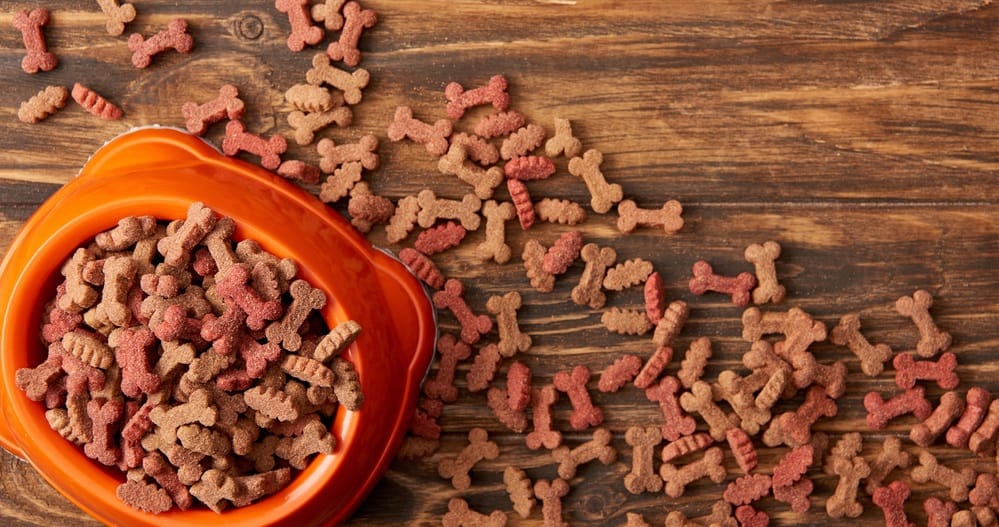
German Shepherds are large, wonderfully intelligent animals. Their breed needs to be carefully fed to ensure that they do not gain weight excessively.
GS are especially prone to hip dysplasia and excessive weight will only exacerbate any problems. Knowing how much to feed a German Shepherd puppy can help you avoid these potential problems.
Ideally, they should be on food with lean protein and low fats to keep their slim physique. Puppies should be fed about 2 cups of food daily, on average.
The amount of food depends on the crude fat contained within the food. A puppy should eat 3 times a day, moving to 2 times a day at around a year old.
Recommended Dog Food For German Shepherd Puppies
1. Royal Canin German Shepherd Puppy Food (Editor’s Choice)
2. Blue Buffalo Wilderness (Runner-Up)
3. Purina Pro Plan Focus (Budget Friendly)
How Much To Feed A German Shepherd Puppy?

2 Week Old German Shepherd Puppy
At 2 weeks old, your German Shepherd puppy will still be with his mother. He should be reliant entirely on his mother’s milk. These small pups will begin to open their eyes to take in the world, but otherwise will not be straying anywhere.
In larger litters, make sure that all of the puppies are growing and gaining well. Pups that don’t seem to be getting enough milk might need to have formula supplemented to them in order to get their weight up to a healthy level. If you are worried about this at all, contact your veterinarian.
3 Week Old German Shepherd Puppy
When your German Shepherd puppy is 3 weeks old, he will be a little perkier than he was the week before, though he should still be napping frequently. You need to keep your puppy entirely on his mother’s milk as he is not ready to wean at this point.
She should be feeding him on demand. His coordination will be improving this week, though it is likely that he still runs awkwardly and falls a lot. He will not stray far from his mother yet but should move away from the litter bed to urinate.
4 Week Old German Shepherd Puppy
Your 4 week old German Shepherd puppy will begin to be curious and start to explore the world around him. This is the time that you can try introducing a very small amount of puppy food to the pups to see if they would be interested in taking a sample or not.
When you do this, make sure to keep a ratio of ¾ water to ¼ puppy food. Their stomachs are still very small at this age, so don’t expect them to eat much. Your puppy is still going to be reliant on his mother’s milk.
5 Week Old German Shepherd Puppy
A 5 week old German Shepherd puppy might be ready to try out that kibble mixture that you might have offered him the previous week.
He should be starting to show more interest in eating it, though his stomach is still going to be very small and he should be getting plenty of his mother’s milk, so he might not be hungry enough to eat it.
Just don’t try to force him to eat the food if he is not interested in trying it yet. The mother dog will help guide him toward weaning if he is not ready to attempt it himself yet.
6 Week Old German Shepherd Puppy
When your puppy is at 6 weeks, it is time to wean him off of his mother’s milk and move toward a diet of puppy food. You can do this by gradually increasing the amount of food in your food to water formula that you made.
Once the puppy will take the ¼ food to ¾ water, increase the food so it is 50/50 water to food. Once your 6 weeks old German Shepherd puppy has tolerated that, just add a little water until he can eat the food straight.
He should have more puppy energy at this point as well, exploring further from his mom.
7 Week Old German Shepherd Puppy
When your puppy is 7 weeks old, he should be eating the kibble without any water mixed in and should not hesitate to eat it. Offer the kibble several times a day and take it away after he has had a couple of bites.
He still will not be totally weaned from his mother. She is likely to feed the puppies quickly, while standing before she takes off again. She is not going to be willing to lie down and let the puppies nurse from her leisurely.
They will have their puppy teeth now and it is not going to be something that the mother wants to do.
8 Week Old German Shepherd Puppy
An 8 week old German Shepherd puppy should be weaned from his mother’s milk and be consuming puppy food. Offer food to him 3 times a day, but do not leave it out after feeding times in order to get him on a solid schedule for meals.
You can offer up to 2 cups a day, but don’t be surprised if he cannot eat it all. He will be burning a lot more calories now, however, and will need to make up for the deficit with well-balanced meals.
Every German Shepherd will eat a different amount of food, so the 2 cups is just an average to keep in mind.
9 Week Old German Shepherd Puppy
Your 9 week old German Shepherd puppy will be rehomed now. If you are changing your puppy’s food from what he was eating with the breeder, you will need to do this gradually, over the course of several days.
This will prevent any gastric upset that he might experience and make the transition more gradual.
You should still keep him on a schedule of meals 3 times a day, broken up into equal portions. Remember to take away any food that goes uneaten. This will help you monitor how much he is actually eating and how his appetite is doing.
10 Week Old German Shepherd Puppy
Your German Shepherd puppy will start to be really hungry by this point. Still, make sure to give him meals three times a day for consistency.
The 2 cups we recommended at 8 weeks might not be enough to curb his appetite. The puppy will begin to experience a rapid growth spurt at this point as well. Be careful with the puppy’s weight.
Overweight German Shepherd puppies can put too much pressure on developing bones, resulting in permanent adult problems, like hip dysplasia. You can monitor size by looking at the puppy’s tummy. When you can see ribs, the dog needs more food.
11 Week Old German Shepherd Puppy
At 11 weeks old, your German Shepherd puppy will be in the midst of a major growth spurt. His appetite should have increased quite a bit and you might need to up the amount of food that he is eating for the next couple of weeks as he goes through his growth spurt.
He also is likely to put other things that are not good in his mouth as well, so make sure that you are keeping an eye on what your puppy is eating and what he has access to. It is best to have puppy chew toys available to prevent him from chewing other things.
12 Week Old German Shepherd Puppy
When your puppy is 12 weeks old, you will still be feeding him often and a lot. German Shepherd puppies grow rapidly between 3 and 6 months, so you can expect to feed him a larger amount until he tapers off of the growth spurt. Outside of size, your puppy will be having big brain growth at this age as well.
You might notice some days he is less inclined to eat than others as he adapts to his new body. Because of the rapid growth, really watch the puppy’s weight. An overweight German Shepherd will have a harder time slimming down, so it is best to not let it happen to begin with.
13 Week Old German Shepherd Puppy
Your 13 week old German Shepherd should be full of life and energy. He will be busy and most likely eat his food with great enthusiasm. Do not take his enthusiasm for eating as a sign that he is not eating enough.
German Shepherds are slim dogs and you will need to ensure that your puppy stays at a healthy weight to ensure a healthy, long life.
Make sure that he is not getting a hold of anything that is not his food, especially since the breed has a higher risk of developing the potentially fatal condition of bloat.
14 Week Old German Shepherd Puppy
At 14 weeks old, your German Shepherd should still be growing steadily. He should be mostly housebroken at this age as well, as long as you have kept him on a regular bathroom schedule.
At 14 weeks, your puppy might be starting to lose his baby teeth in place of his adult teeth, which means he will be likely to chew on everything.
The hard kibble in puppy food will bring small relief, but having chew toys on hand is the best. Keep feeding him 3 times a day and you should continue to feed him this way until he is around a year old.
What Nutrients Does a German Shepherd Puppy Need?
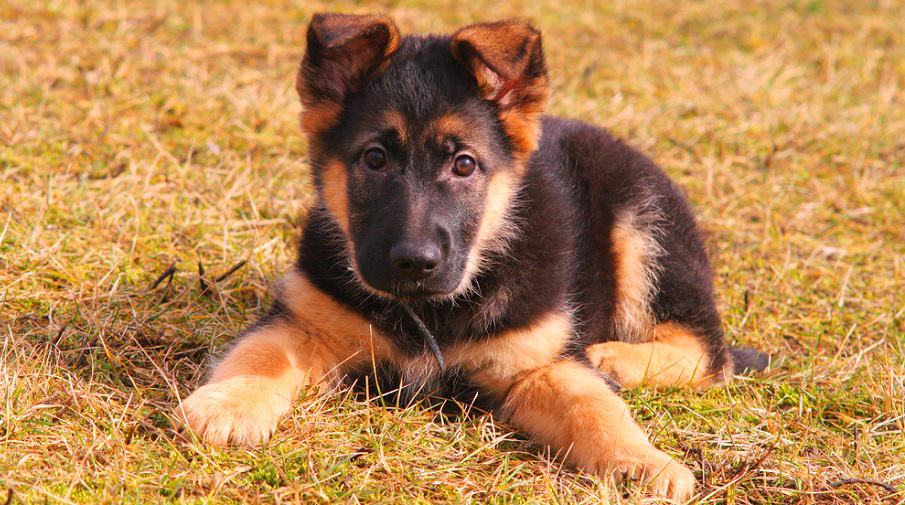
German Shepherd puppies require a protein-rich diet to help them grow well and have sustained energy for their active lifestyle. Your puppy needs at least 22% protein in his diet. High-quality protein sources include fish, chicken, and beef.
According to our German Shepherd puppy feeding chart, your pup needs 5% of fat in their diet for healthy skin and coat. The recommended amount of carbs for your puppy is 5% to 8% and should come from fruits and vegetables such as peas and potatoes.
Your puppy also requires minerals, vitamins, probiotics, antioxidants, water, and omega fatty acids in their diet to ensure that their immunity is healthy.
1. Royal Canin German Shepherd Puppy
Editor’s Choice
Our recommendation for the best puppy food for German Shepherds is the Royal Canin Puppy Food. This food is especially great because it is specifically formulated with German Shepherds in mind, taking into account all of their health and nutritional needs.
German Shepherds have sensitive digestive systems and need food that will be well-tolerated while still having all of the necessary nutrition for growing puppies.
Pros:
- Formulated specifically for German Shepherds
- Kibble is shaped for German Shepherd muzzles
- Protects puppies’ developing immune system
- Easily digestible
- Helps with bone and joint health
Cons:
- Contains fillers
2. Blue Buffalo Wilderness Puppy Food
Runner-Up
Our second choice for GS puppies is the Blue Buffalo Wilderness puppy food. This food is made entirely grain-free and there are no animal by-products.
It contains real chicken as well and is incredibly high in protein, making it a great choice for muscle development. Without preservatives, you know every bag of this food is fresh.
Pros:
- No preservatives, by-products, or fillers
- Made with real chicken
- Formula contains DHA and ARA
- Completely grain-free
- Great blend of antioxidants, vitamins, and minerals
Cons:
- Very high level of protein, which might be too much for some puppies
3. Purina Pro Plan Focus
Budget Friendly
For good puppy food on a budget, we suggest the Purina Pro Plan Focus. This food is made to give your puppy the right start to life with a great balance of nutrition.
With the omega-rich fish oil, your puppy’s brain will be growing at the right pace. It also has glucosamine for joint development and health.
Pros:
- Contains DHA from omega-rich fish oil for brain development
- Antioxidant-rich formula for immune system development
- Made with high-quality protein
- Works for dogs up to one year-old
- Comes with natural sources of glucosamine
Cons:
- It does have some poultry by-product
4. Eukanuba Large Breed Puppy Food
Another great choice for German Shepherd puppies is the Eukanuba puppy food for large breeds. This is a protein-rich food that has a high amount of DHA to help with brain growth as well as other minerals to help ensure your puppy’s body is growing well.
Considering this was made for large breeds, it has a good balance between protein, fat, and carbohydrates, helping to keep GS slim and active.
Pros:
- High levels of DHA for brain development
- High-quality chicken
- Supports muscle growth
- Great balance of fat and carbohydrates
- Contains calcium for bone growth
Cons:
- Contains animal by-products
5. Taste of the Wild High Prairie Puppy
Our last food recommendation is for the Taste of the Wild High Prairie puppy blend. This is a high-protein food that has no grains, fillers, or preservatives.
The first ingredient listed in the good is buffalo, which is a good indication that it is full of good meat. The idea behind this food is that dogs are descended from wolves and need the type of diet that their predecessors ate for optimal health.
Pros:
- High-quality protein
- Contains antioxidants and DHA
- Is made with roasted bison and venison
- Grain-free, preservative-free
- Contains probiotics
Cons:
- Has little fiber, which will not work for all dogs
Feeding Your German Shepherd Puppy Raw Food
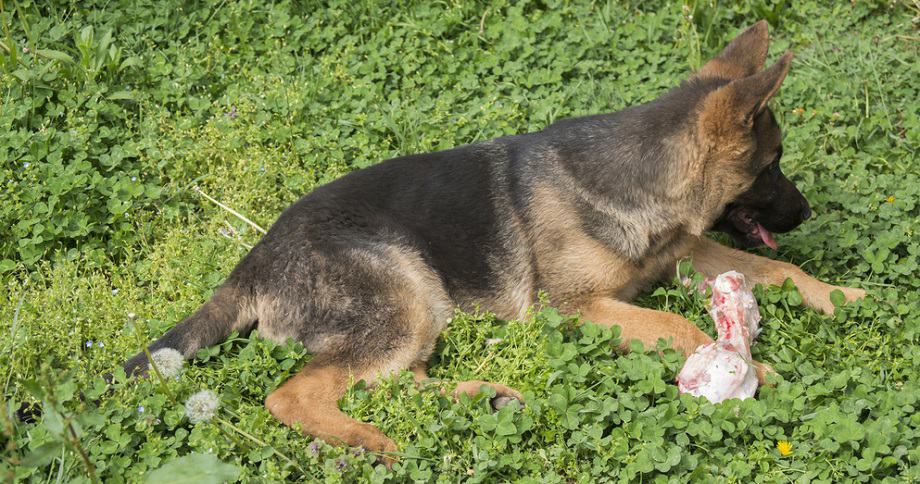
Feeding raw food to your German Shepherd puppy means that they are always eating wholesome, fresh, allergen-free foods that do not have any fillers and preservatives.
Raw food is easy to digest for your puppy and can help prevent Inflammatory Bowel Disease. Raw food means that your puppy does not eat unnecessary carbs allowing them to maintain a healthy weight.
However, uncooked raw foods can cause contamination with pathogens causing illness to your puppy. Unbalanced raw food can also affect the overall health of your puppy.
Raw foods such as muscle meat, edible bone, liver, vegetables, and fruits will ensure that your puppy is getting all the necessary nutrients. Consult with your vet to come up with raw diet recipes for your puppy.
What Human Foods Can a German Shepherd Puppy Eat?
Sometimes, your German Shepherd puppy deserves to be given a treat, and certain human foods are great options. There are proteins, veggies, fruits, carbs, and nuts eaten by humans that can you feed your puppy.
Proteins such as chicken, turkey, fish, eggs, and beef are great sources to help your puppy gain lean muscle and become strong.
Safe fruits for your puppy include blueberries, apples, strawberries, watermelon, coconut, bananas, and mangos. They are packed with minerals, vitamins, and antioxidants.
Safe veggies for your German Shepherd puppy include green peas, carrots, bell peppers, broccoli, and cucumber. Safe nuts for your puppy are peanuts but they should be plain. Safe carbs for your puppy include rice and sweet potatoes because they are easily digestible.
What Human Foods Are Dangerous for A German Shepherd Puppy?
Though your German Shepherd can enjoy human foods, some of them can cause harm and they should be avoided to avoid making your puppy ill.
Chocolate contains the theobromine toxin which causes health issues for your puppy – these include rapid heartbeat, vomiting, diarrhea, seizures, and hyperactivity.
Avocado is another toxic food for your puppy because it contains persin which causes serious gastrointestinal issues when eaten. Other foods to avoid feeding your German Shepherd puppy include onions, raisins, grapes, fruit pits, macadamia nuts, and sometimes dairy.
When And How To Change The Feeding Of Puppy To Adult
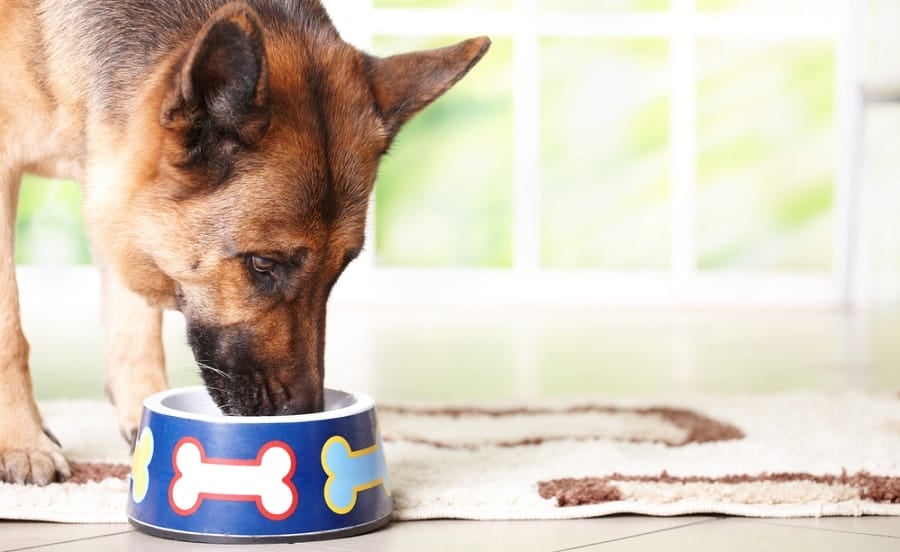
Many owners would like to know what is the best age to switch their German Shepherd puppy to adult food. The best way to shift your German Shepherd from puppy food to adult dog food is to look at his age and size.
When a German Shepherd is around 1 to 1.5 years old, he is generally considered an adult. This is a good estimate of when you could consider making the switch.
When a German Shepard has attained around 80-90% of their overall growth, is a good indicator of when the switch should be made.
It is always better to do this gradually as an abrupt switch may not be ideal. If you feed your dog twice per day, you can start giving him adult food mixed in with his usual food.
Should You Feed A German Shepherd Puppy Supplements?
Required Vitamins and minerals are an essential part of a puppy’s diet. This is invaluable to a healthy puppy’s growth. If you want your dog to have healthy skin and a shiny coat, you should feed him vitamin A. You can give him vitamin E to help support his immune system.
Minerals act as a supplement to the vitamins and also ensures the healthy general function of your German Shepherd’s entire anatomy.
You need to be aware that just of the best vitamins and minerals for your German Shepherd puppy by visiting your vet and assessing his overall health.
Feeding Length Of Your German Shepherd Puppy
You need to observe your German shepherd in order to determine his mealtime lengths. Take note of how long he takes to finish a normal portion of food.
You also need to observe how long he takes to be full and pay careful attention to if he is still hungry after eating his portion.
Usually, German shepherds will take around 10 to 15 minutes to complete a meal, providing that you adhered to the customary feeding instructions. If you notice that your dog is displaying signs of eating slowly, you should pay a visit to your vet.
On the other hand, if you notice that your German Shepherd is still hungry after completing a meal, you should also pay a visit to your vet.
How Much Water Should A German Shepherd Puppy Drink
Your German Shepherd puppy needs to drink 6 ounces of water per day for every 3.5 kilograms of body weight. Therefore, if your puppy weighs approximately 35 kilograms, he needs to have about 60 ounces of water every day.
If your dog is engaged in a lot of physical activity, or if the weather is hot, then this amount may need to be increased. You may notice that your dog is panting and this is a clear sign of dehydration. Always keep the water bowl full.
2 Month Old German Shepherd Puppy Weight
When your GS puppy is 2 months old, you can expect him or her to weigh between 16 and 20 pounds, depending on the sex of the puppy. Females will always be a little lower on the scale than their male counterparts.
They are bigger dogs and do gain weight quicker than other breeds, but you still want to watch for signs of gaining too much too quickly or being underweight.
3 Month Old German Shepherd Puppy Weight
At 3 months, you can expect your German Shepherd to weigh between 25 and 30 pounds, depending on the sex of the puppy. Your puppy should have gained about 10 pounds in the last month.
Because of this rapid growth, you will need to make sure your pup is on a low-fat diet that is also full of protein. Your puppy might be teething around this age, which means you might see a temporary drop in interest in food.
4 Month Old German Shepherd Puppy Weight
By 4 months old, your German Shepherd puppy should weigh between 36 and 42 pounds. He will be about half-size of what he will be when he is fully grown. He should be slimming down as well, and getting taller.
You should be able to see a waist at this point. If you have any concerns about your puppy’s weight, make sure to contact your vet right away to make a plan to stay on track.
5 Month Old German Shepherd Puppy Weight
When your German Shepherd puppy is 5 months old, you can expect him to weigh between 35 and 49 pounds. The difference will depend on the size of your dog. While females are normally smaller than males, with German Shepherds it is a slight difference.
As long as your dog is staying on his own growth curve, you will not need to be as concerned whether he is not in the average weight range.
6 Month Old German Shepherd Puppy Weight
A German Shepherd puppy that is 6 months old should weigh between 44 and 57 pounds, depending on the dog’s natural size. Some GS’s are going to be naturally larger than others, while others are smaller, so you should only use the weight as a marker.
The best indicator for good weight is that you can easily see your dog’s waist and maybe even his ribs slightly. Talk to your vet if you have concerns about his weight. Here’s a German Shepherd growth chart for more in-depth information.
German Shepherds Background
German Shepherds are a large breed that started in Germany in 1899. They were bred originally to help with herding and guarding sheep.
As a result, they are working dogs and prefer to have a job and a task, which is why they are preferred by police departments and the military.
GS are also incredibly strong as well as obedient, becoming dedicated to their owners. They are incredibly smart dogs with an excellent sense of smell. They are prone to hip dysplasia and can have dental issues if given the wrong type of food.
Types Of Diet For German Shepherd Puppies
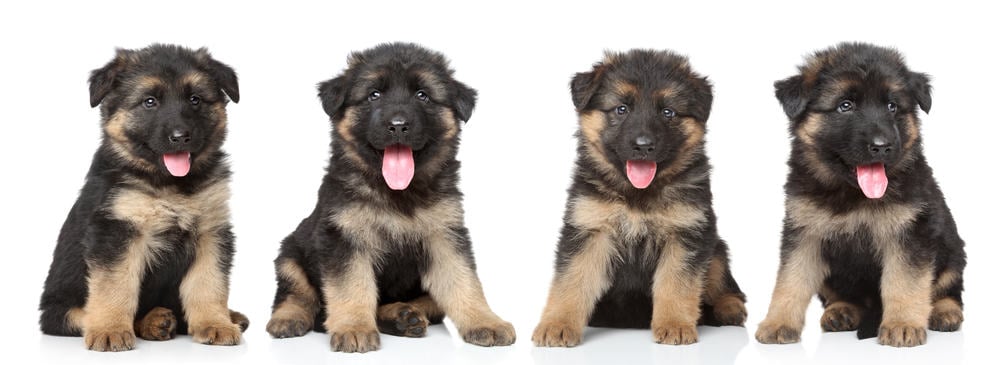
German Shepherds are lean and strong dogs, which means that they need a diet that is high in lean proteins, but low in fats and carbohydrates. A GS that is overweight will have trouble losing weight because of the way that their body is made.
Overweight puppies will also have too much pressure put on their hips and since hip dysplasia is a real concern for GS, you want their hips to grow well. Stay away from foods that are high in filler as well because that will contribute to weight gain without positive benefit.
Creating A Consistent Feeding Schedule
Keeping your German Shepherd puppy on a consistent food schedule will help teach him when to expect food. It will help regulate his hunger and ensure that he is eating consistently to grow well.
The ideal schedule for a puppy is to give him about 2 cups of food a day, broken up into 3 meals. When your puppy reaches one year, you can decrease the amount to 2 meals a day. The needed amount can vary from puppy to puppy.
Canned Or Dry Food For German Shepherd Puppies?
Most dogs will always opt for the sweet smell of wet, canned food, but that is not the best idea for German Shepherds. Canned food is typically higher in fat due to its wet consistency and it can cause dental issues for your dog as he gets older.
Dry food naturally removes any build-up and plaque from your dog’s teeth, keeping them as healthy as possible.
Dry food is also better for digestion and is normally more protein-based with less fat. Get your puppy off to the right start by keeping him lean and keeping his teeth healthy.
German Shepherd Feeding Guide For Seniors
You will need to modify your German Shepherd’s diet when he changes from adult life stage to senior. Older German Shepherds have lower energy needs.
They will begin to have less physical activity and move slower, and so they will require fewer calories each day. You should increase in fiber amount in their diet because digestion tends to slow down in seniors
There are some commercially sold dog foods that are already adjusted for seniors. If you prepare your own dog food, you will need to reduce the calories primarily through the carbs.
Senior German Shepherds still require proper nutrition, especially for their bones and joints.
When it comes to treats, senior dogs should have healthy ones like whole-food treats such as apple slices or carrots.


